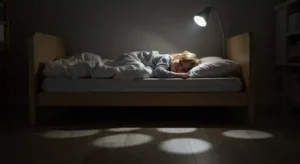Discover the top 5 drinks that ruin your sleep—and what to drink instead. From alcohol to caffeine, learn how to improve your sleep quality starting tonight.
In this comprehensive guide, we’ll explore the top 5 drinks to avoid before bed, explain how they disrupt your natural sleep architecture, and offer healthy alternatives that promote a better night’s sleep. Whether you’re a coffee lover, wine enthusiast, or just enjoy a soda with dinner, this article will help you make smarter choices for your sleep wellness.
Why What You Drink at Night Matters
Sleep is not just about duration—it’s about quality. Deep sleep and REM (Rapid Eye Movement) stages are where your body and brain perform essential healing and memory processing. The wrong beverage can prevent you from reaching or maintaining these stages, leading to symptoms like:
- Fatigue upon waking
- Brain fog or poor memory
- Mood swings and irritability
- Reduced immune function
- Higher stress and anxiety levels
Let’s take a closer look at what drinks to avoid—and why
1. Alcohol: The Illusion of Restful Sleep
Many people enjoy a glass of wine, cocktail, or beer to unwind in the evening. While alcohol may initially help you fall asleep faster, the quality of that sleep is far from ideal.
How Alcohol Disrupts Sleep
Reduces REM sleep, which is essential for emotional regulation and memory consolidation
Causes frequent awakenings during the night
Increases snoring and symptoms of sleep apnea
Acts as a diuretic, causing more trips to the bathroom
According to SleepEducation.org, even moderate alcohol use within 6 hours of bedtime can reduce sleep quality for up to eight hours after consumption.
“Alcohol acts like a sedative at first, but over time it disrupts natural sleep cycles, leading to non-restorative sleep and increased daytime drowsiness.”
Better Option: Replace alcohol with a warm, non-caffeinated herbal tea like chamomile or lemon balm, which promotes relaxation without impairing sleep stages.
2. Caffeinated Beverages: The Sneaky Stimulants
Caffeine is the world’s most popular stimulant, but it’s also one of the biggest threats to deep, high-quality sleep. Found in coffee, energy drinks, soda, black and green teas, and even some pain relievers, caffeine can linger in your body for 6–8 hours or more.
How Caffeine Affects Sleep
- Increases alertness and suppresses melatonin production
- Delays sleep onset (the time it takes to fall asleep)
- Reduces total sleep time
- Shortens deep sleep duration
A study published in the Journal of Clinical Sleep Medicine found that consuming caffeine even 6 hours before bed can reduce total sleep time by up to an hour and affect sleep efficiency.
Surprising Sources:
- Iced tea
- Flavored waters
- Protein powders with added stimulants
- Decaf drinks (which still contain trace amounts of caffeine)
Better Option: Choose decaffeinated teas or warm almond milk, which contain magnesium and can help relax muscles and the nervous system.
3. Sugary Sodas and Sweetened Drinks
Carbonated drinks like cola, root beer, and flavored energy beverages are often packed with both sugar and caffeine—a double hit to your sleep quality.
Why Sugar Disrupts Sleep
- Spikes blood sugar, leading to energy bursts and crashes
- May cause vivid dreams or restlessness
- Triggers insulin spikes that interfere with melatonin production
- Often stimulates late-night hunger or cravings
Research suggests that high-sugar diets are linked to shorter sleep duration, lighter sleep, and more frequent nighttime awakenings.
Better Option: Try a lightly flavored herbal infusion or unsweetened coconut water, which provides natural hydration and electrolytes without the sugar crash.
4. Chocolate Milk and Bedtime Smoothies
While warm milk is often touted as a natural sleep aid (thanks to tryptophan), adding chocolate or sugar-heavy ingredients can negate those benefits.
Hidden Sleep Disruptors in Nighttime Smoothies
Cocoa contains caffeine
Added sugars increase metabolic activity
Protein powders or “recovery” drinks may include hidden stimulants
Overeating close to bedtime can cause indigestion or bloating
Even dark chocolate, often thought of as healthy, contains 20–30 mg of caffeine per ounce.
Better Option: Go for plain warm milk, or blend a sleep-friendly smoothie with banana, oats, and nut butter—natural sources of magnesium, potassium, and tryptophan.
5. Excessive Water or Hydration Drinks
It might sound counterintuitive, but drinking too much water before bed can also ruin your sleep.
Why Late Hydration Hurts Rest
- Increases the likelihood of nocturia (frequent urination at night)
- Interrupts deep sleep stages
- Can trigger anxiety in those prone to sleep disturbances
Hydration is important, but timing matters. Overloading on water in the hour before bed may result in multiple bathroom trips, especially for older adults.
Better Option: Cut off water consumption 60–90 minutes before bedtime. Sip a small amount of water with calming herbs earlier in the evening if you’re thirsty.
Smart Sleep-Friendly Drinks to Try Instead
If you’re looking to improve sleep quality, consider swapping your go-to drinks with one of these relaxing options:
- Chamomile Tea – Calming and anti-inflammatory, supports sleep onset
- Passionflower Tea – Mild sedative properties help regulate sleep patterns
- Tart Cherry Juice – A natural source of melatonin
- Golden Milk (Turmeric + Warm Milk) – Anti-inflammatory and sleep-inducing
- Warm Almond Milk – Magnesium-rich and naturally calming
Conclusion: Your Sleep Is in Your Cup
Sleep is not a luxury—it’s a critical foundation of health. Poor sleep increases the risk of heart disease, weight gain, depression, and weakened immunity. The drinks you consume in the evening could be the missing link in your sleep hygiene routine.
By eliminating alcohol, caffeine, sugary sodas, chocolate-laced beverages, and excessive water intake late at night, you create the right biological environment for deep, uninterrupted sleep.
Want to sleep better starting tonight? Swap out the drinks that sabotage your rest and build a calming nighttime beverage ritual. Your body—and mind—will thank you in the morning.
Frequently Asked Questions
What are the worst drinks before bed?
Alcohol, caffeinated beverages (coffee, energy drinks), sugary sodas, chocolate-based drinks, and excess water are some of the worst drinks for sleep. Each disrupts sleep quality through different mechanisms.
What can I drink to sleep better at night?
Herbal teas like chamomile or passionflower, warm almond milk, or tart cherry juice are ideal nighttime beverages. They help relax your nervous system without impairing sleep architecture.








